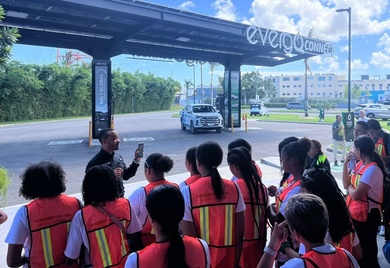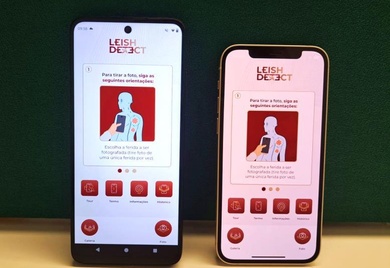The way to build the future is to invest in it

The world is evolving at exponential speeds. Technology is contributing to a future marked by major social and economic improvements. This is especially true in Latin America and the Caribbean. Mobile subscribers in the region have increased 800% in the last five years. In 2017, financial technology (fintech) companies transacted more than US$90 billion in transactions in the region, an amount that surpasses Panama’s gross domestic product (GDP). And the region already leads the world in clean energy.
Private sector innovation and competition have led to much of these technological advances, but development challenges remain. The region’s productivity lags its East Asian peers. Financing gaps, such as infrastructure, amount to billions of dollars or over 2% of the region’s GDP, while women-led businesses are still less likely to access financing than their male counterparts.
The speeds, flexibility and power of technology have their limits. Our clients in the region’s private sector have ambitious goals, and it will take a range of solutions to achieve them.
Designing for trust and client-focus
For example, AirBnB, a hotel retailer, has grown from zero to 24 million annual guests in less than a decade. AirBnB does rely on technological platforms to unite lodging supply with demand, but it is the company’s ability to foster trust that gave it market leadership. This means fostering trust not only in the company to match people and process payments but also fostering trust among complete strangers who share their homes with one another. AirBnb, like Netflix, iTunes and so many others, remind us that technology alone is not the real disruptor. Designing for trust and the client experience is much bigger.
Staying relevant while building a better future
The digital disruption leaves no room for complacency. In addition to upending the hotel industry, it has taken over taxi and retail services highlighting that the quest to stay relevant is more difficult than ever. These changes, coupled with cash strapped governments and geopolitical shifts, put pressure on development banks to turn the billions on their balance sheets into trillions of development finance.
To compete in today’s world and achieve our collective development goals, we must find ways to solve tomorrow’s challenges. A client experience defined by process agility, product flexibility and a sense of trust will allow development banks to stay relevant in changing times.
Staying relevant includes more equity and quasi-equity, such as mezzanine and subordinated debt, to grow companies and allow them to create jobs. It includes engaging institutional investors through products like B-Bonds and demonstrating that their investments in emerging markets can perhaps outperform their developed market comfort zone.
Staying relevant includes offering more local currency so that borrowers can repay in the currency they are generating cash flow. We also work in a world of liquidity where cash is no longer king. Providing advisory and knowledge to our clients will be what adds value and defines our development impact. These are some of the ways development banks can better tailor client experiences, reduce risks and allow clients to focus on stimulating development.
Today, we are launching the most consequential makeover in our history. We are revamping our vision, strategy, products, sectors and culture under the new brand IDB Invest. This is about our commitment to take the best of what works. Our synergies with IDB coupled with product flexibility and process agility incorporate the best of the public and private sectors.
Our transformation may be facilitated by technology, but it will be driven by a quest to put clients at the center and earn their trust and business in return. This will ensure the development impact for all our stakeholders.
LIKE WHAT YOU JUST READ?
Subscribe to our mailing list to stay informed on the latest IDB Invest news, blog posts, upcoming events, and to learn more about specific areas of interest.
Subscribe



